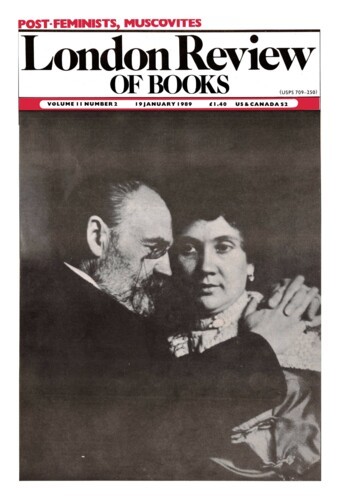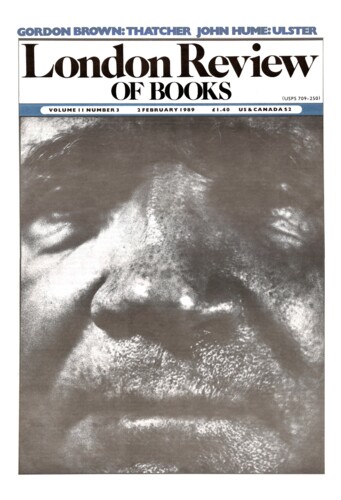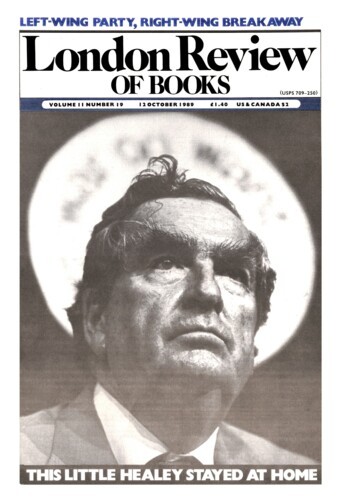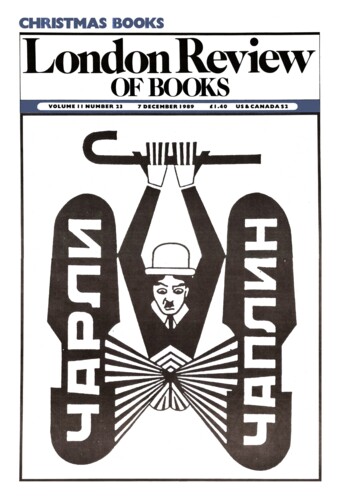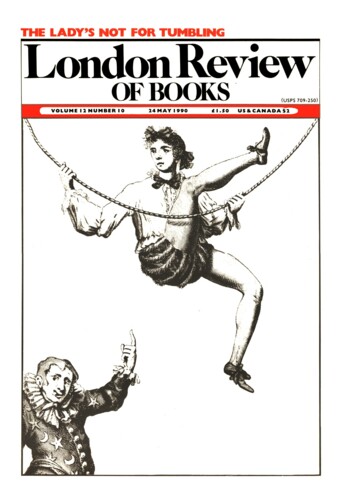Sssnnnwhuffffll
Mark Ford, 19 January 1989
This is Ciaran Carson’s second collection of poems. His first, The New Estate (1976), revealed an intricate, lyrical poet intensely aware of traditional Irish cultures, and concerned to connect them meaningfully with the sprawl of modern living; these early poems are taut, rather literary, and often very beautiful. His themes are pretty much the same in his equally impressive new book, but his approach to them has changed radically. All the poems in The Irish for No are written in long easygoing lines – more or less fourteeners – and exhibit a wonderful fidelity to the casual flow of ordinary speech and storytelling. What could be more enticing and relaxing than this for the opening of a yarn?’
